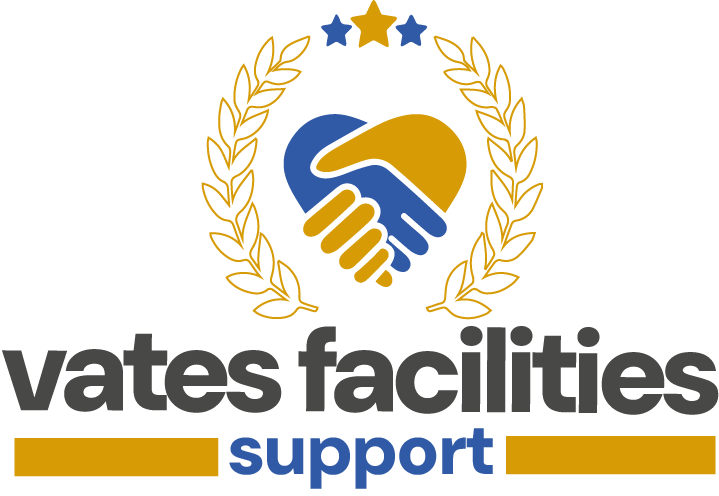Maximizing Efficiency and Quality in Industrial Cleaning Operations
Maintaining a clean and safe environment in industrial facilities is crucial for operational efficiency, employee safety, and regulatory compliance. However, achieving this goal requires careful planning, the right strategies, and effective management of cleaning operations. In this comprehensive guide, we will explore how to maximize efficiency and quality in industrial cleaning operations, whether you choose to manage them in-house or outsource to professional cleaning services.
Join us as we delve into best practices, innovative techniques, and practical tips to ensure your industrial facility meets the highest standards of cleanliness. From optimizing cleaning schedules to implementing quality control measures, this guide provides valuable insights to help you streamline your cleaning operations and achieve outstanding results.
Introduction to Industrial Cleaning Efficiency
Industrial cleaning is not just about maintaining a spotless appearance; it is essential for ensuring the health and safety of employees, prolonging the lifespan of equipment, and complying with industry regulations. Efficient cleaning operations contribute to a productive work environment and minimize the risk of accidents and equipment failures.
In this section, we will explore the importance of efficiency in industrial cleaning and the key factors that influence it. Understanding these factors will help organizations develop strategies to enhance their cleaning processes and achieve optimal results.
Best Practices for In-House Industrial Cleaning
Managing industrial cleaning operations in-house offers certain advantages, such as direct control over the process and the ability to tailor cleaning procedures to specific needs. However, it also comes with challenges that require effective management and planning. This section outlines best practices for maximizing efficiency and quality in in-house industrial cleaning.
1. Developing a Comprehensive Cleaning Plan
A well-structured cleaning plan is the foundation of efficient in-house cleaning operations. This plan should outline the cleaning tasks, frequency, and areas to be cleaned, ensuring that all critical areas are covered.
Key Elements of a Comprehensive Cleaning Plan:
- Task List: Identify all cleaning tasks required, from daily routines to periodic deep cleaning.
- Schedule: Establish a cleaning schedule that balances regular maintenance with deep cleaning to prevent the buildup of dirt and contaminants.
- Resource Allocation: Determine the manpower and equipment needed for each task to ensure adequate coverage.
2. Investing in High-Quality Equipment and Supplies
Using the right equipment and supplies can significantly impact the efficiency and effectiveness of your cleaning operations. Invest in high-quality cleaning tools and products that are designed for industrial use.
Recommended Equipment and Supplies:
- Industrial Vacuums: Efficiently remove dust and debris from large areas.
- Floor Scrubbers: Ensure thorough cleaning of hard floors and prevent slip hazards.
- Steam Cleaners: Eliminate tough stains and sanitize surfaces without harsh chemicals.
- Eco-Friendly Cleaning Products: Use environmentally friendly products to reduce chemical exposure and environmental impact.
3. Implementing Training Programs for Cleaning Staff
Proper training is essential for ensuring that cleaning staff can perform their tasks efficiently and safely. Regular training programs should cover cleaning techniques, equipment usage, and safety protocols.
Training Program Components:
- Basic Cleaning Techniques: Teach staff the correct methods for various cleaning tasks.
- Equipment Operation: Provide hands-on training for operating cleaning equipment safely and effectively.
- Safety Procedures: Educate staff on the proper handling of chemicals and the use of personal protective equipment (PPE).
4. Establishing Quality Control Measures
Consistent quality control is crucial for maintaining high standards of cleanliness in industrial facilities. Implementing quality control measures helps identify areas for improvement and ensures that cleaning tasks are performed to the required standards.
Quality Control Strategies:
- Regular Inspections: Conduct routine inspections to assess the cleanliness of different areas and identify any issues.
- Feedback Mechanisms: Encourage employees to report any cleaning concerns or suggestions for improvement.
- Performance Metrics: Track key performance indicators (KPIs) such as cleaning time, incident reports, and compliance with cleaning schedules.
Advantages of Outsourcing Industrial Cleaning
Outsourcing industrial cleaning services can provide significant benefits, especially for large or complex facilities. Professional cleaning companies bring expertise, specialized equipment, and the ability to handle diverse cleaning challenges. This section explores the advantages of outsourcing industrial cleaning and how it can enhance efficiency and quality.
1. Access to Specialized Expertise
Professional cleaning companies have extensive experience and expertise in industrial cleaning. They are familiar with the specific requirements and challenges of different industries and can provide tailored cleaning solutions.
Benefits of Specialized Expertise:
- Knowledge of Industry Standards: Ensure compliance with industry regulations and standards.
- Efficient Problem-Solving: Quickly address and resolve cleaning challenges with specialized knowledge and techniques.
- Innovative Solutions: Access to the latest cleaning technologies and methods for optimal results.
2. Cost Savings and Resource Optimization
Outsourcing can lead to cost savings by eliminating the need for in-house staff, equipment, and supplies. It allows organizations to focus their resources on core business activities while ensuring high-quality cleaning services.
Cost Savings Strategies:
- Fixed Service Costs: Benefit from predictable costs with service agreements and avoid unexpected expenses related to equipment maintenance and staff training.
- Scalable Services: Adjust cleaning services based on demand, avoiding overstaffing or underutilization of resources.
- Reduced Administrative Burden: Minimize the time and effort required to manage cleaning operations in-house.
3. Enhanced Flexibility and Scalability
Professional cleaning companies offer flexible and scalable services that can be tailored to meet changing needs. Whether you require regular maintenance or specialized cleaning for specific projects, outsourcing provides the flexibility to adapt to your requirements.
Scalability and Flexibility Benefits:
- Customized Cleaning Plans: Develop cleaning plans that align with your facility’s unique needs and schedule.
- Responsive Service: Quickly adjust services to accommodate changes in production schedules, facility usage, or special events.
- Availability of Specialized Services: Access specialized cleaning services for tasks such as deep cleaning, high-level disinfection, or hazardous material cleanup.
Implementing Effective Quality Control Measures
Whether managing cleaning operations in-house or outsourcing, implementing effective quality control measures is essential for maintaining high standards of cleanliness. This section provides strategies for ensuring consistent quality and addressing any issues that arise.
1. Conducting Regular Inspections
Regular inspections help identify areas that require attention and ensure that cleaning tasks are performed to the required standards. Inspections should be conducted by trained supervisors or quality control personnel.
Inspection Strategies:
- Scheduled Inspections: Conduct inspections at regular intervals to maintain consistency.
- Unannounced Inspections: Perform surprise inspections to assess the actual state of cleanliness without prior preparation.
- Detailed Checklists: Use comprehensive checklists to cover all areas and tasks during inspections.
2. Utilizing Performance Metrics
Tracking performance metrics allows organizations to measure the effectiveness of their cleaning operations and identify areas for improvement. Key performance indicators (KPIs) provide valuable insights into the efficiency and quality of cleaning services.
Key Performance Metrics:
- Cleaning Time: Monitor the time taken to complete specific cleaning tasks.
- Incident Reports: Track the number and type of incidents related to cleanliness, such as spills, slips, or contamination.
- Compliance Rates: Measure adherence to cleaning schedules and protocols.
- Customer Feedback: Collect feedback from employees and facility users to gauge satisfaction with cleaning services.
3. Implementing Feedback Mechanisms
Encouraging feedback from employees and facility users helps identify areas for improvement and ensures that cleaning services meet the needs of the organization. Feedback mechanisms should be easy to use and accessible to all stakeholders.
Feedback Strategies:
- Surveys and Questionnaires: Use surveys to gather input on cleaning quality and areas for improvement.
- Suggestion Boxes: Provide anonymous suggestion boxes for employees to share their concerns or suggestions.
- Regular Meetings: Hold regular meetings with cleaning staff and facility managers to discuss performance and address any issues.
Ultimately, the right choice between in-house operations and outsourcing for industrial cleaning depends on your facility’s unique needs, budget, and resources. It’s essential to evaluate the advantages and disadvantages of each option carefully before making a decision.
FAQs
- What are the main advantages of in-house industrial cleaning?
- In-house industrial cleaning offers direct control over the cleaning process, potential cost savings in the long run, immediate response to emergencies, training flexibility, and equipment customization to meet specific needs.
- What are the drawbacks of outsourcing industrial cleaning?
- Outsourcing can lead to a loss of direct control over the cleaning process, dependency on external providers, limited customization, concerns about confidentiality and security, and potential declines in service quality.
- How do I evaluate the cost-effectiveness of in-house vs. outsourced cleaning?
- To evaluate cost-effectiveness, compare the expenses associated with hiring, training, and managing in-house staff, as well as purchasing and maintaining equipment, against the fixed or variable costs of contracting a professional cleaning service.
- What should I consider when selecting a professional cleaning company?
- Assess the company’s experience and expertise, reputation and references, ability to provide customized proposals and flexibility, quality assurance measures, and communication practices.
- Can a hybrid approach to industrial cleaning be beneficial?
- Yes, a hybrid approach can be beneficial. Routine day-to-day cleaning tasks can be managed in-house, while specialized or periodic cleaning needs can be outsourced to professional cleaning companies.
Call to Action
For more information or to request our services, visit vfsupport.com or email us at sales@vfsupport.com. At VATES Facilities Support, we are dedicated to helping you maintain the highest standards of cleanliness and efficiency in your industrial facility. Contact us today to learn more about our comprehensive solutions and how we can support your business needs.


Leave a Reply